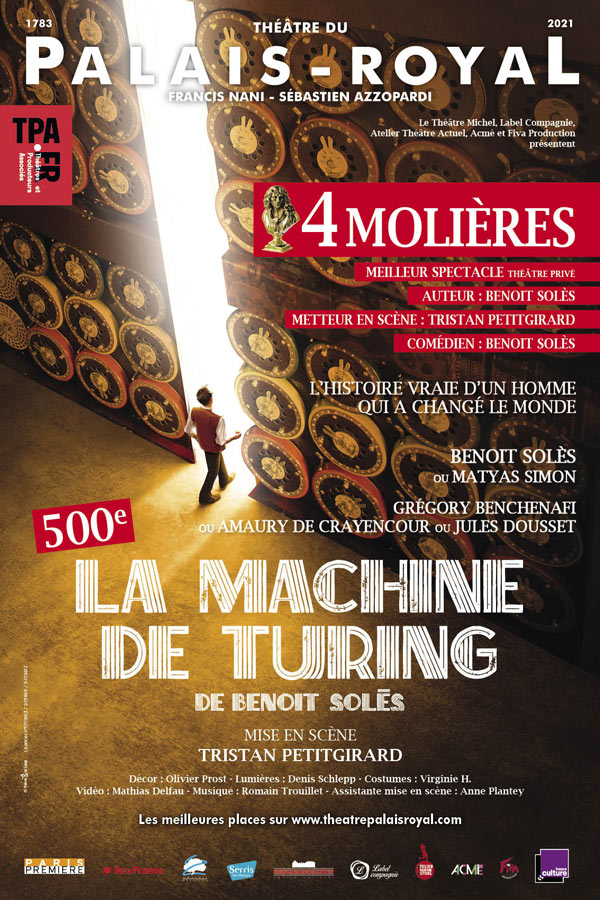Anne de Boissy, director and actress, adapted Agota Kristof's autobiographical novel, L'analphabète, for the stage. The bilingual staging brings together and dialogues French and French Sign Language (FLS). 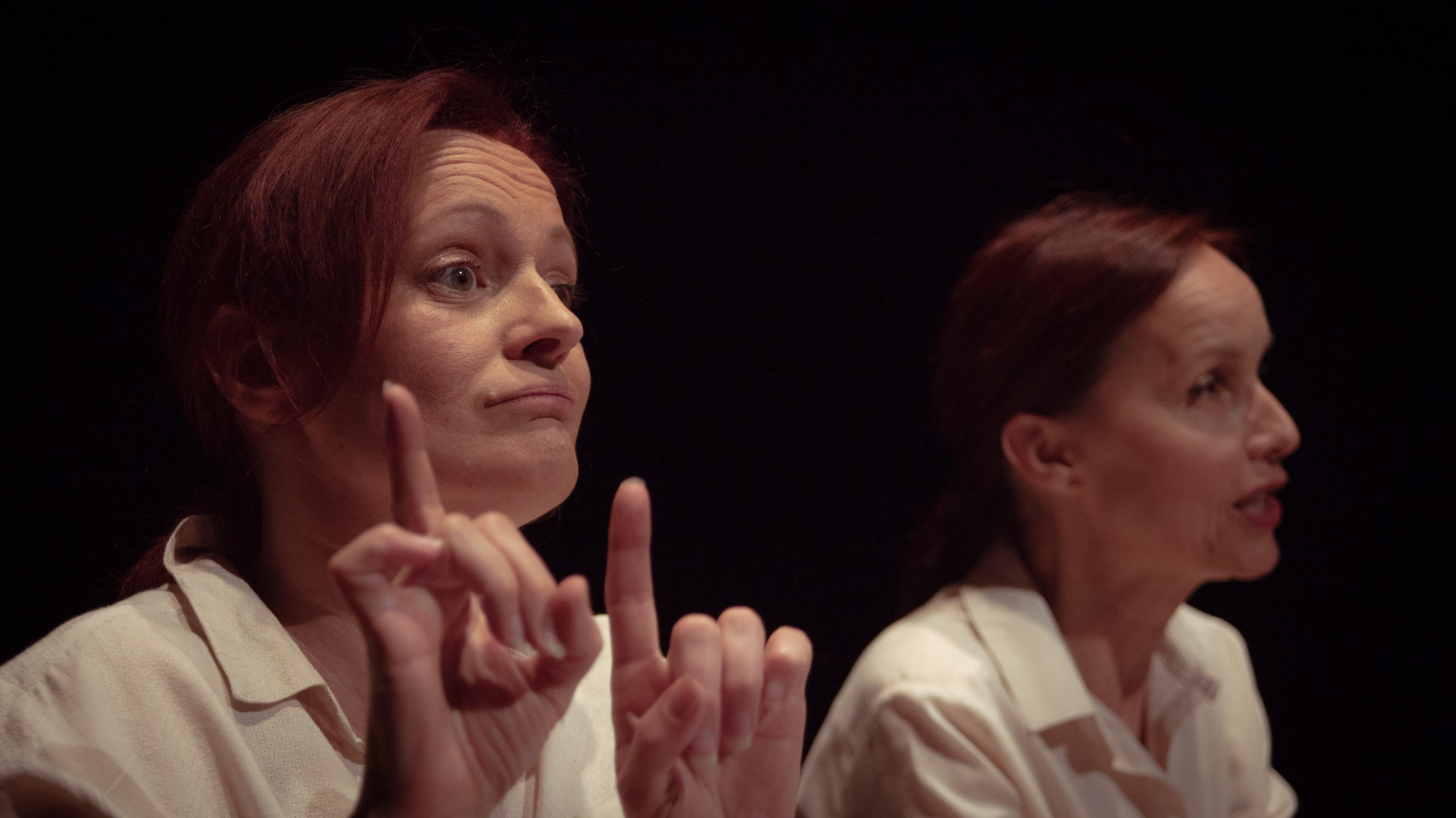
Mother tongue and enemy language in The Illiterate
Published in 2004, The Illiterate is an autobiographical novel written by Agota Kristof. Born in Hungary in 1939, she was forced to flee her country in 1956, then invaded by Soviet troops. She found refuge in Neuchâtel, Switzerland, where she learned French. Agota Kristof calls Russian and German "enemy languages". These are, in fact, the languages of the countries that invaded his country, Hungary. In addition, French became her adopted language, the language in which she chose to write.
" I didn't choose this language. It was imposed on me by fate, by chance, by circumstances. Writing in French, I have to. It's a challenge. The challenge of an illiterate. Agota Kristof
The conflict between mother tongue and enemy languages, central to L'analphabète, echoes the reality today between French sign language and French. Thus, the Trois-Huit collective has chosen to adapt these texts on stage, in a writing where sign language and oral language share space.
More than a translation: a dialogue
At first, Anne de Boissy translates by the word what Isabelle Voizeux signs. Thus, the two women tell in the first person the story of Agota Kristof, from her childhood in Hungary, to her adult life in Switzerland, through her exile.
Little by little, the two texts mingle, the voice of one and the hands of the other cross, wait and seek each other. The viewer no longer knows who is translating whom. Playing with the refined and subjective setting, which they transform over the scenes, the actresses echo and respond to each other, creating, finally, a real dialogue between the two languages.
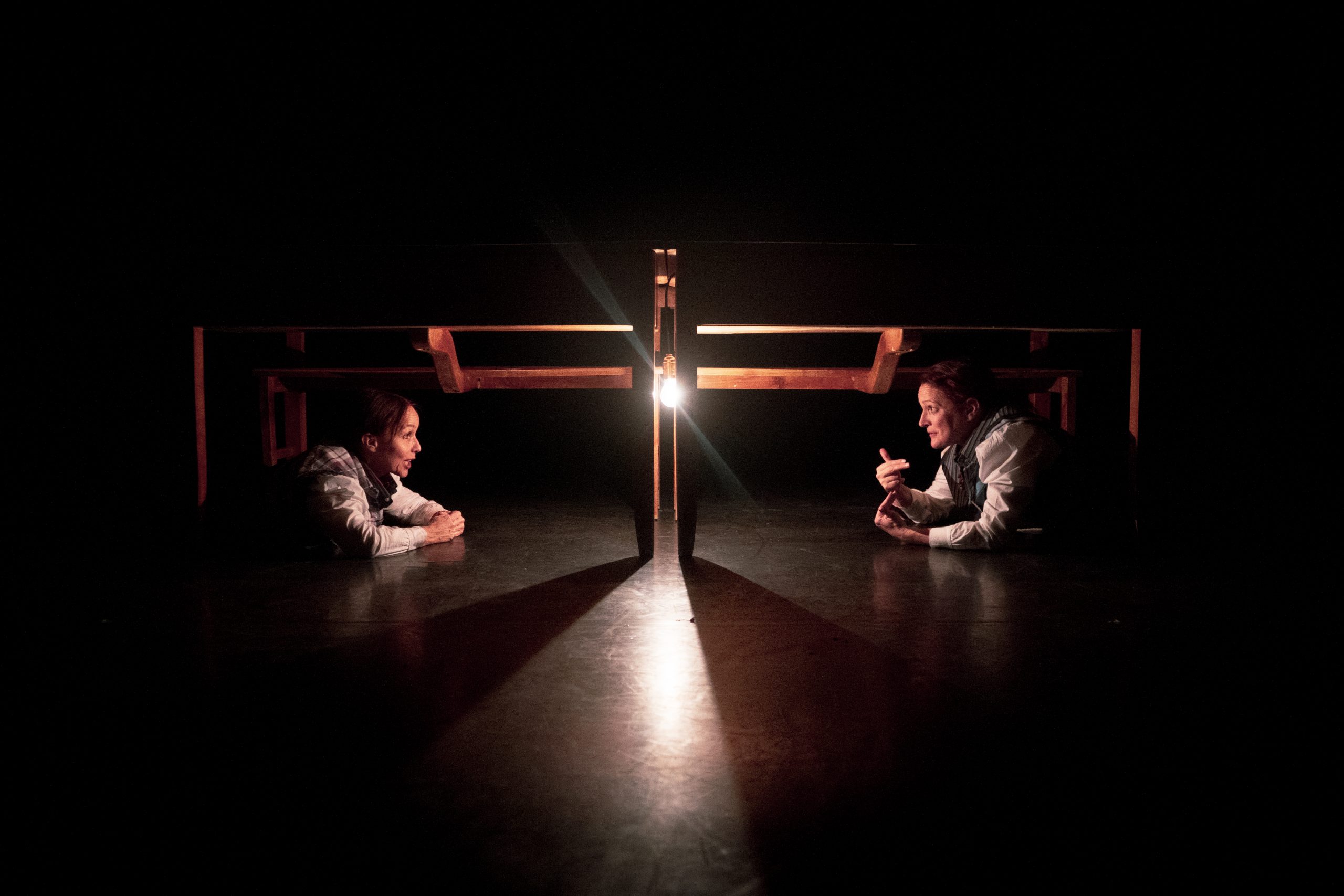
A striking contrast is visible between the two actresses. When enthusiasm and vitality can be read in the hands and face of the signer, loneliness and monotony is visible on the face of the speaker. A glaring difference that creates a major opposition between the two acts of actresses.
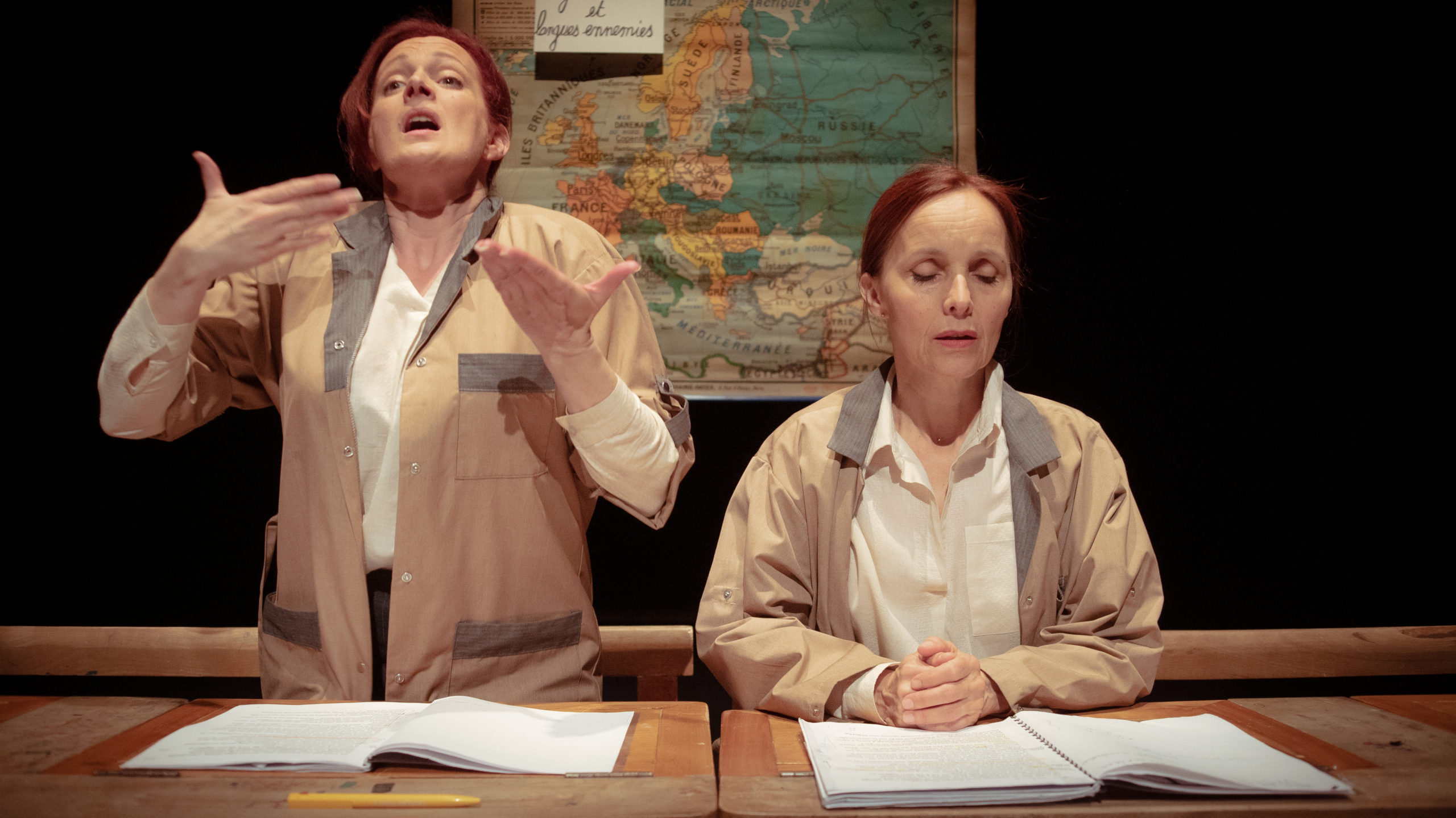
The spectator who does not sign, will not grasp the text in its entirety, the jokes thrown here and there or the specificities of the dialogue between the two women. Anyone who does not speak sign language will feel like a foreigner in a country where he does not speak the language. A bit like Agota Kristof when she arrived in Switzerland. The viewer who does not sign will have the feeling of being illiterate.
A word about Agota Kristof
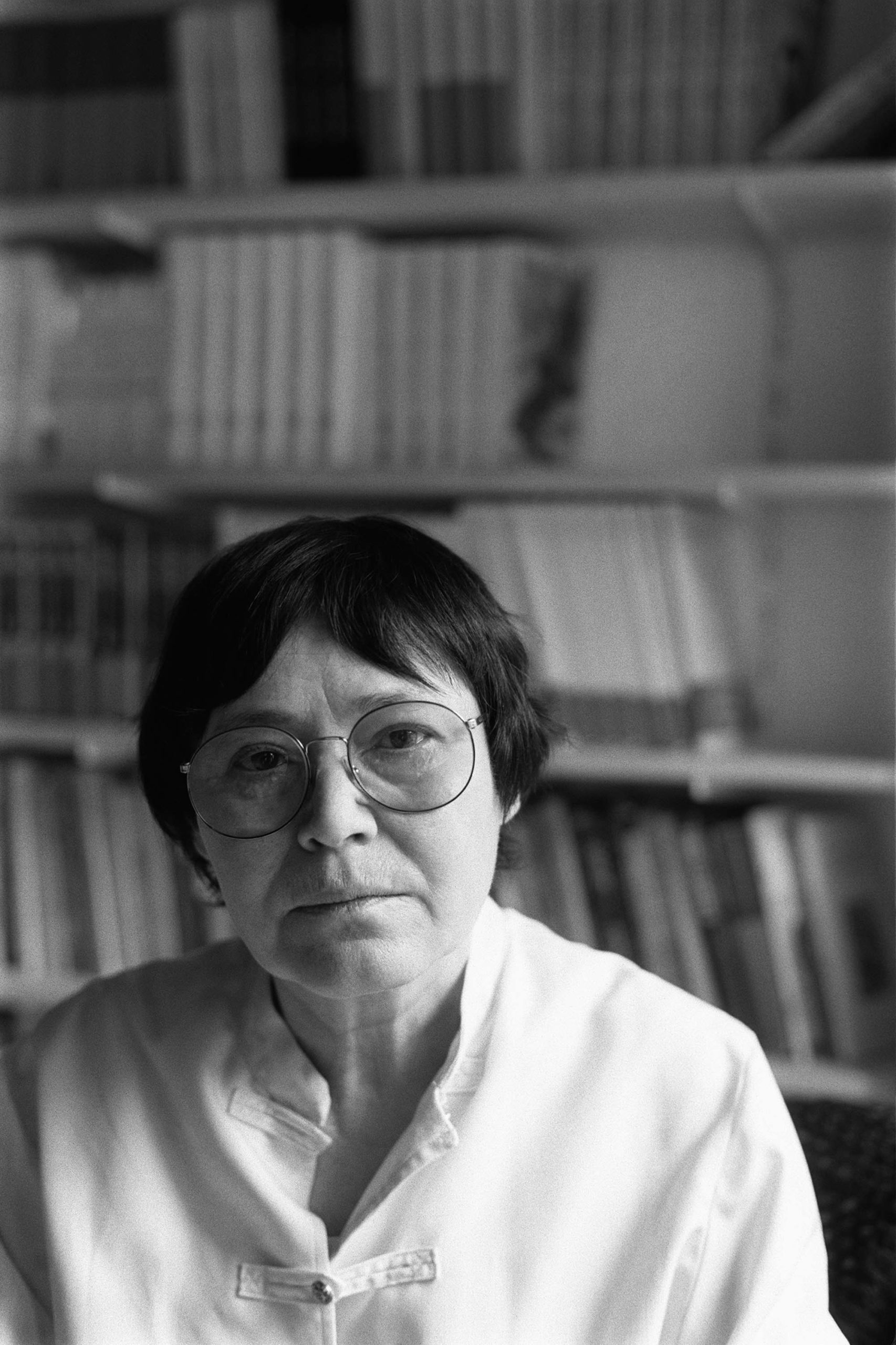 Agota Kristof is a writer, poet, novelist and playwright born in Hungary in 1935. When Hungary was invaded by Soviet troops in 1956, 21-year-old Agota Kristof fled on foot with her husband and baby to Austria. They finally settled in Neuchâtel, Switzerland, where she found a job in a factory. She will live there for the rest of her life. In 1987, she became famous with her first novel, Le Grand Cahier, which received the European Book Prize. Two more books followed, The Proof and The Third Lies. Today, the trilogy, translated worldwide, is still being reprinted. The illiterate Text by Agota Kristof. Direction, adaptation, interpretation Anne de Boissy. Translation, adaptation, interpretation Isabelle Voizeux. Translation, adapted by Géraldine Berger.
Agota Kristof is a writer, poet, novelist and playwright born in Hungary in 1935. When Hungary was invaded by Soviet troops in 1956, 21-year-old Agota Kristof fled on foot with her husband and baby to Austria. They finally settled in Neuchâtel, Switzerland, where she found a job in a factory. She will live there for the rest of her life. In 1987, she became famous with her first novel, Le Grand Cahier, which received the European Book Prize. Two more books followed, The Proof and The Third Lies. Today, the trilogy, translated worldwide, is still being reprinted. The illiterate Text by Agota Kristof. Direction, adaptation, interpretation Anne de Boissy. Translation, adaptation, interpretation Isabelle Voizeux. Translation, adapted by Géraldine Berger.















![[Live Report] Rock En Seine 2024 : 20 ans et toujours aussi passionnés !](https://www.justfocus.fr/wp-content/uploads/2024/11/RES24_JOUR01_LANA-DEL-REY_LOUIS-COMAR-12.jpg)
















